Self-employment is on the rise in Canada. In 2018, 2.9 million Canadians were classified as self-employed. That number is continuing to grow across the country. KB Accounting Services Inc. recognizes the value of equipping self-employed individuals with the knowledge of allowable business expenses to make informed business decisions.
Are you aware of what is and what is not allowable as a business expense in Canada? Self-employment is growing across the country and understanding what can and cannot be claimed at tax time will allow you and your business to make smart decisions while in operation.
KB Accounting Services Inc. will share the short and sweet of what we've coined “Small Business Accounting 101”, concerning allowable business expenses:
Small Business Accounting 101: Rule of Thumb
First and foremost, when claiming business expenses during tax time, they need to be reasonable—and—need to be expenses that are related to earning income for your business.
Small Business Accounting 101: Records
Secondly, all receipts that will be claimed as a business expense are being stored for safe keeping. The physical receipts are not required at tax time. However, they will be required if you are audited down the road. The Canadian Revenue Agency (CRA) requires all business owners to hold onto receipts that have been claimed as business expenses for a minimum of six years.
Small Business Accounting 101: Business Expenses
There are a vast number of allowable business expenses that can be broken down into a few categories: Business Operating Expenses, Home Office and Expenses and Capital Property. It is important to note that all allowable business expenses stated are generalized and are not a one-size fits all approach when determining your business’s allowable expenses.
Business Operating Expenses—
These expenses are essentially the cost of doing business. Everything from start-up costs, legal fees, advertising and office expenses to vehicle expenses, maintenance and repair, meals and entertainment, salaries and everything in between! If it helps your business earn income, there’s a good chance that it is included on the list of allowable business expense. See more expenses in detail here. (LINK)
Home Office and Expenses—
Home offices are becoming more and more common. If using a home office to operate your business, it opens up more allowable business expenses that were not mentioned in the “Business Operating Expenses” section above. There are certain criteria that must be met before a home office and costs associated to the home office are allowed to be claimed.
Firstly, you can deduct expenses for the business use of a workspace in your home—as long as it is either your principal place of business, or you use the space to earn your business income on a regular ongoing basis to meet clients, customers or patients.
If you meet the conditions stated above, then you are able to deduct part of the maintenance costs for the home office, such as: heat, home insurance, electricity and cleaning materials. In addition, a portion of your property taxes, mortgage interest and Capital Cost Allowance (CCA).
Often, a home is used for both business and personal living. In this case, a formula will be used to determine how many hours in the day are used for business purposes and this amount will be used as an allowable business expense. Or most common method, alternatively, the calculation is based upon the square footage of the home and the square footage of the workspace.
Capital Property—
Capital property is a large business purchase that is a depreciable asset. Purchases that fall under this category are vehicles, furniture, equipment or buildings.
CRA states that the whole business expense is not allowed to be claimed in one year. Although, a percentage of the purchase price over the lifetime of the item is allowed to be claimed. This is known as CCA, briefly mentioned above.
As a business owner, understanding the full range of allowable business expenses is essential. This will allow you to make decisions that favour both you and your business.
Contact Me
For any questions you may have, please feel free to contact me by phone at (306) 530-9548 or by using my online contact form below.






